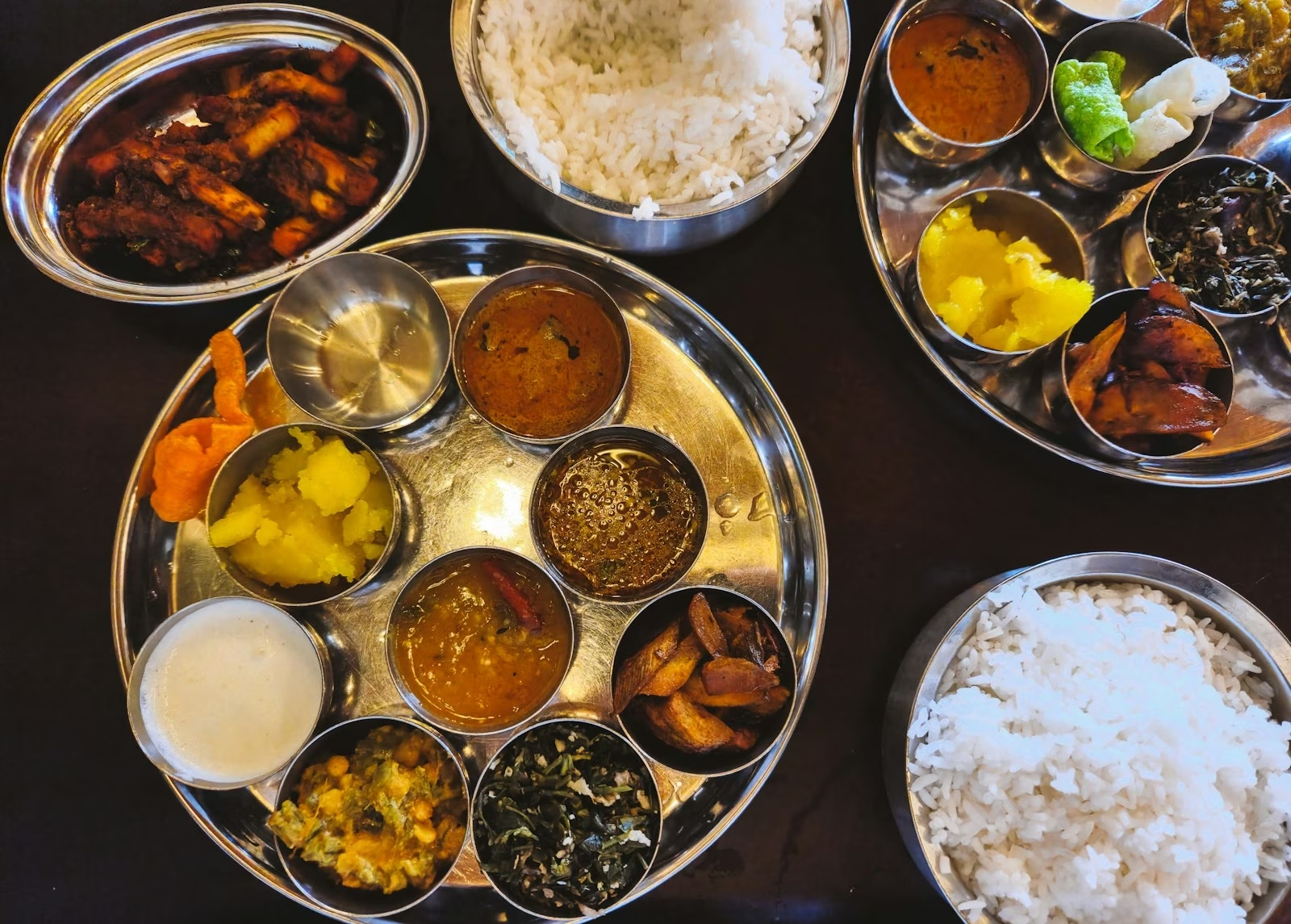Elevating Logic
Elevating Logic
Elevating the way we think, decide, and solve.
Featured Posts

Exploring Static Site Generators: Jekyll, Hugo, and Why They Matter
Static Site Generators offer a modern approach to building websites, providing speed, security, and simplicity. This guide introduces Jekyll and Hugo, two popular SSGs, and highlights their key benefits.

6 ways Google Android uses common concepts to hide tracking in 2025
From persistent advertising IDs to hardware-level tracking with Titan M chips, Android's design inherently enables extensive user monitoring. Drawing on official documentation, regulatory rulings, and technical research, we reveal why opting out of this surveillance ecosystem is virtually impossible.

15 Top AI-Powered and Smart Email Management Tools to Boost Productivity in 2025
Email overload can be overwhelming. Discover how AI-powered tools can automate tasks, prioritize messages, and keep your inbox organized. This article reviews popular and niche solutions to boost your email efficiency.

Best Cryptomator Alternatives for 2025: Secure Your Files with These Leading Encryption Tools
Discover leading file encryption solutions as alternatives to Cryptomator, including VeraCrypt, rclone, gocryptfs and more. Learn which tool best fits your security needs for cloud or local storage.

Top 25 Most Powerful Disease-Fighting Indian vegetables🌿Ranked by Effectiveness
Discover the top 25 powerful Indian vegetables ranked by their effectiveness in preventing diseases like diabetes, heart disease, and cancer. Learn about key nutrients and how each vegetable supports a healthy lifestyle.

Top 20 Cheap Paid Email Services with Email Alias Support (2025 Guide)
Discover the 20 best budget-friendly email providers that support unlimited aliases for enhanced privacy and reduced spam. Compare features, pricing, and real-world examples to find the ideal service for your needs.
Recent Posts

Exploring Static Site Generators: Jekyll, Hugo, and Why They Matter
Static Site Generators offer a modern approach to building websites, providing speed, security, and simplicity. This guide introduces Jekyll and Hugo, two popular SSGs, and highlights their key benefits.
Posts
-
Exploring Static Site Generators: Jekyll, Hugo, and Why They Matter
-
6 ways Google Android uses common concepts to hide tracking in 2025
-
20 Must-Have iPad Apps That Will Revolutionize Your Productivity🚀 and Creativity
-
15 Top AI-Powered and Smart Email Management Tools to Boost Productivity in 2025
-
Best Cryptomator Alternatives for 2025: Secure Your Files with These Leading Encryption Tools
-
Top Gadgets for Christmas 2024
-
Upcoming Movie Releases January 2025
-
Top 15 Indian CEO Salary - A Close Look at the Real Numbers - bad, good or out of the park.
-
2024 Year in Review for Streaming Services
-
Digital Detox During the Holidays
-
Cloud Storage Comparison 2024: Best Providers for Security, Pricing, and Features
-
How to download complete web page including javascript,CSS and images as a single file .HTML file?
-
Navigating AI Model Compatibility: Running Top AI Models on the NVIDIA RTX 4060
-
Simple and plain: Pros and Cons for you. Digital Personal Data Protection Rules 2025 India
-
403 You don't have access to this conversation
-
80 Top series to watch in Netflix, Amazon Prime, and Apple TV OTT - From 2015 to 2025
-
Top 20 Cheap Paid Email Services with Email Alias Support (2025 Guide)
-
Top 25 Most Powerful Disease-Fighting Indian vegetables🌿Ranked by Effectiveness
-
Simplified: Digital Personal Data Protection Rules 2025
-
Doge Benefits for USA and for India
-
GPU Video Ram VRAM Requirements for AI Models: Text, Audio, and Video
-
Calorie Count - Nutrient Breakdown with numbers: Best Foods for Weight Loss and Muscle Building
-
40 Must-Have iPad Apps for Work, Creativity, Health, Social Media, and More in 2025
-
Health Food Trends 2025
-
Root Causes of Poverty in India: How Nirmala Sitharaman and Shaktikanta Das Fiscal Policies Fuel Poverty
-
Why Platter Hard Drives Prices Aren’t Dropping - Truth
-
Simple Guide to MongoDB export Data for LibreChat Using Docker
-
Eco-Friendly New Year's Resolutions
-
EdTech Innovations 2025
-
Login/Register
-
5 Best Windows GUI Tools for AI Apps in 2025 with OpenAI API Integration
-
Winter Wellness Routines
-
How much does a typical taxi driver earn in Bangalore realistically in 2025? - A Detailed Cost Profit Analysis of Popular Taxi Vehicles in Bengaluru
-
Sustainable Holiday Decorations
-
Snapdragon X Elite - Analysis of True Value compared to AMD, Intel and Apple
-
Fitness Trends 2025
-
Price Comparison of note taking apps : Obsidian Notion Simple Note Standard Notes Logseq Joplin
-
How can blockchain be used so that it can replace a country's currency
-
Top Finance Apps for 2025 Planning
-
How can I install Google Chrome on Fedora?
-
30 times India Was Deceived - 5 Crucial Lessons from History for Every Indian
-
What are the top 5 learnings from Cloud Storage and SAAS?
-
Gaming Trends for 2025
-
Google Chrome Automatic Register - is becoming a Privacy Nightmare
-
Reviewed - Top 5 High Quality Lossles HiRes Audio Music Players for Windows and Mac
-
Holiday Travel Tips 2024
-
Best Winter Skincare Routines
-
Best OLED Pure black background theme in PyCharm
-
Aurangzeb and His Actions in History: Uncovering the Actions and its Impacts
-
How to Choose the Best Electric Toothbrush: A Comprehensive Guide
-
Privacy Policy
-
Checkout
-
My account
-
2025 Real Estate Trends
-
Top 30 facts Facts India, China, Pakistan - Russia, USA - Wars, History and Truth
-
How do I log out of the Copilot extension in Visual Studio?
-
Top SaaS Tools for Startups
-
If majority of Indians dont have enough cash, then who in India has that cash. Why India poor?
-
Installing Windows 7 on Hyper V in 2023
-
Scorecard Showdown - A Comprehensive Comparison of Obsidian and Notion
-
Mindfulness for Professionals
-
Comparison of image quality and file size of Top Image Formats - jpgxl, avif.
-
New Year's Resolution Ideas
-
Index
-
Top 10 Chrome Alternative browser NOT based on Chromium Engines
-
My account
-
Checkout
-
Emerging AI Chatbot Uses
-
Error Crowdsec Metabase Dashboard 2024
-
Optimizing MariaDB for Performance and Stability
-
The Real Reason India Fell to British Rule in 1757
-
Why countries rejected the 300 Billion Climate Proposal: Detailed Analysis United Nations COP29 climate $300 - UN Climate Deal
-
Terms of Service
-
What is Fiat money, and what are the benefits and dangers compared to gold-pegged money?
-
Artificial Intelligence - Where exactly are the risks of AI ML and why it should NOT be fully regulated?
-
Home
-
Why web ads and ad networks are dangerous - Top 10 reasons with in depth technical analysis.
-
AI Writing Tools for Resumes
-
Login/Register
subscribe via RSS